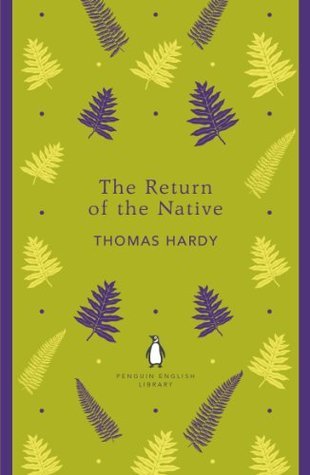What do you think?
Rate this book


'Do I desire unreasonably much in wanting what is called life - music, poetry, passion, war, and all the beating and pulsing that is going on in the great arteries of the world?'
Tempestuous Eustacia Vye passes her days dreaming of passionate love and the escape it may bring from the small community of Egdon Heath. Hearing that Clym Yeobright is to return from Paris, she sets her heart on marrying him, believing that through him she can leave rural life and find fulfilment elsewhere. But she is to be disappointed, for Clym has dreams of his own, and they have little in common with Eustacia's. Their unhappy marriage causes havoc in the lives of those close to them, in particular Damon Wildeve, Eustacia's former lover, Clym's mother and his cousin Thomasin. The Retun of the Native illustrates the tragic potential of romantic illusion and how its protagonists fail to recognize their opportunities to control their own destinies.
The Penguin English Library - 100 editions of the best fiction in English, from the eighteenth century and the very first novels to the beginning of the First World War.
479 pages, Kindle Edition
First published January 1, 1878

”Her presence brought memories of such things as Bourbon roses, rubies, and tropical midnights; her moods recalled lotus-eaters and the march in ‘Athalie’; her motions, the ebb and flow of the sea; her voice, the viola. In a dim light, and with a slight rearrangement of her hair, her general figure might have stood for that of either of the higher female deities. The new moon behind her head, an old helmet upon it, a diadem of accidental dewdrops round her brow, would have been adjuncts sufficient to strike the note of Artemis, Athena, or Hear respectively, with as close an approximation to the antique as that which passes muster on many respected canvases.”


Yeobright placed his hand on her arm. ‘Now, don’t you suppose, my inexperienced girl, that I cannot rebel, in high Promethean fashion, against the gods and fate as well as you. I have felt more steam and smoke of that sort than you have ever heard of. But the more I see of life the more do I perceive that there is nothing particularly great in its greatest walks, and therefore nothing particularly small in mine of furze-cutting. If I feel that the greatest blessings vouchsafed to us are not very valuable, how can I feel it to be any great hardship when they are taken away?’


“To recline on a stump of thorn in the central valley of Egdon, between afternoon and night, as now, where the eye could reach nothing of the world outside the summits and shoulders of heathland which filled the whole circumference of its glance, and to know that everything around and underneath had been from prehistoric times as unaltered as the stars overhead, gave ballast to the mind adrift on change, and harassed by the irrepressible New. The great inviolate place had an ancient permanence which the sea cannot claim.”
